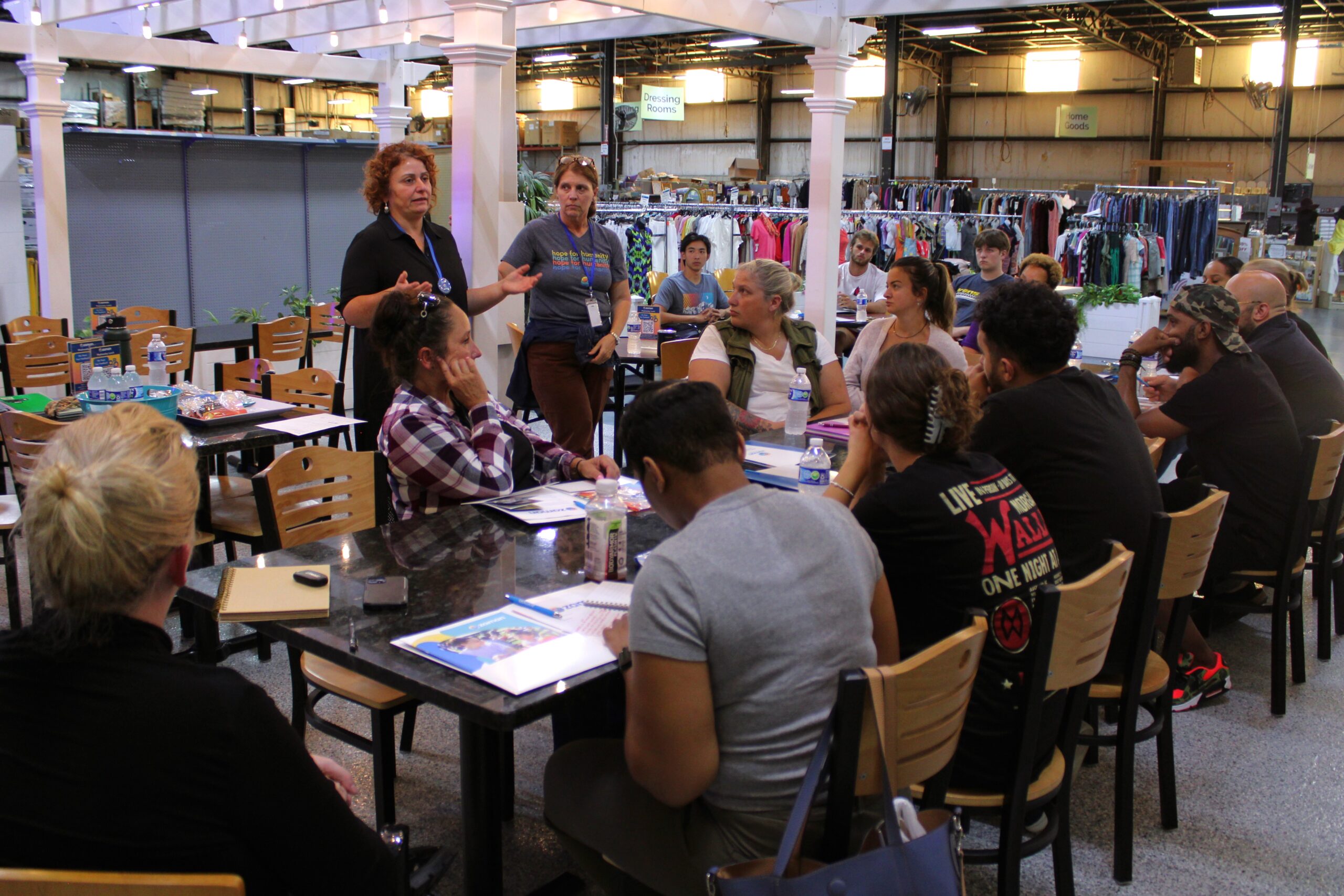Students in Steve Donovan’s supply chain management course worked closely with representatives from Zaman International to assist their efforts and help their operations run more smoothly.
Steve Donovan made a substantial change to his syllabus to his supply chain management course just weeks before the Fall semester began. That change turned out to be an effective one, forever impacting his students and a local community organization.
A conversation with Jessica Worden, who oversees Service Learning here at Schoolcraft College, made him familiar with Zaman International, a nonprofit based in Inkster that helps break the cycle of poverty through evolving education, workforce development and employment programs. Worden told Donovan the organization may benefit from the work of his students through a Service Learning project.
After taking a tour and seeing the facility, Donovan agreed.
“It didn’t take me long to realize that there’s a lot of things that need to be fixed,” he said. “They’ve expanded in a lot of different areas and our students were excited to work with them.”
Throughout the Fall semester, Donovan’s students used Zaman International as a case study, making visits to their warehouse and studying the methods it keeps organized, such as how to help them intake and catalog their materials.
Zaman International began in 1996 when the organization’s founder, Najah Bazzy, was providing care to a terminally-ill infant. The organization works predominantly with women and children, especially refugees. The organization has several divisions, including workforce development programs. It also provides necessities for families as well, such as food and clothing. Since its beginning, Zaman International has assisted more than 3 million people worldwide.
Donovan pitched the concept to his class at the beginning of the semester, receiving cautious optimism from his class. Once the students heard directly from representatives from Zaman International, a light bulb went off in their heads, Donovan said.
“That hit the mark. That got the wheels turning and got the students thinking, ‘I can help them,’” Donovan said.
A fruitful relationship
Students studied the ways the organization did business, including making a trip to their warehouse to see firsthand how they operated.
“Working with Zaman International this past semester was an insightful and rewarding experience. It allowed me to apply theoretical knowledge from supply chain management in a real-world nonprofit setting,” said Mohammed Kassak, a student in the class. “The opportunity to collaborate with an organization that focuses on empowering women and children while improving operational efficiencies was both meaningful and challenging. It was also a great chance to observe how nonprofits operate differently from for-profit businesses, particularly in their focus on social impact alongside financial sustainability.”
The culmination of a semester-long project resulted in a presentation made on ways to improve supply chain issues to Zaman International officials.
Connecting the students with the nonprofit was an effective use of Service Learning, Worden said.
“I think this is a great project,” she said. “The part that I am really excited to see is the student engagement levels that are going on.”
Representatives from Zaman said they hope to utilize some of the recommendations from the students in the future.
“Zaman was a great choice for the class’s projects because we have experienced rapid growth in recent years, from which many new programs and activities that engage various supply chains have arisen,” said Carly Slank, associate director of communications for Zaman. “Schoolcraft students were able to bring a fresh perspective to operations that have been expanded and overlaid across our existing programs over the years.”
Slank said such an example was reimagining the space dedicated for sewing, as well as the organization’s Good Deeds Resale Shop point of sale system.
Florence Burns, a student who gave feedback on the sewing space, said she appreciated how her interactions with Zaman leadership went during the semester.
“Their feedback was appreciative and positive and the fact we did a case study for them. We did ours on the Stitch Lab and they were impressed with the ideas we came up with in our presentation with how to control the waste and inventory control management,” she said. “Some of our ideas they think can be used immediately.”
Donovan said the pivot to working with Zaman International was a worthwhile endeavor this past semester, one he hopes continues in the future.
“I’ve never worked with a nonprofit organization previously. This is all new to me,” he said. “It was a great enhancement. I’m always open to modifying things and changing things.”
The relationship proved fruitful for Zaman as well, an experience Slank said they were happy to help facilitate.
“For some students, it may have been their first time working in a real-world setting where they could see the practical implications and limitations of what they’ve learned in their studies,” Slank said. “The constraints of real day-to-day operations with all of the complications of an organization’s historical operations, staffing, and budget are things that don’t easily translate into classroom learning, and using Zaman in this project gave them practice considering those factors when problem-solving. “Zaman is incredibly grateful for the work that Schoolcraft students completed last semester to help us improve our operations. As an organization with over 500 active community partners each year, we place great value in the contributions and support of each of our partners.”

